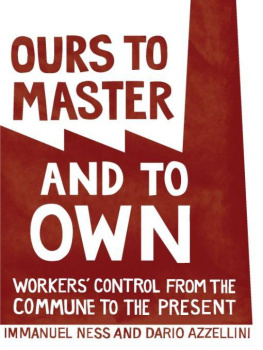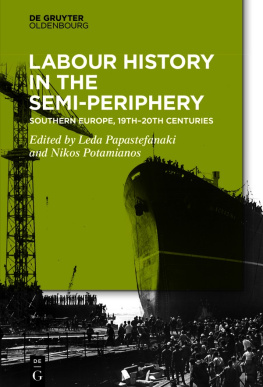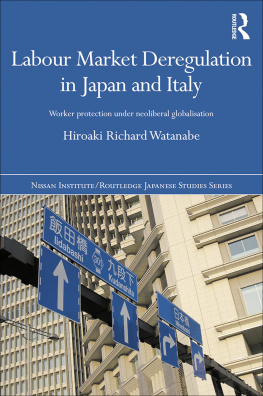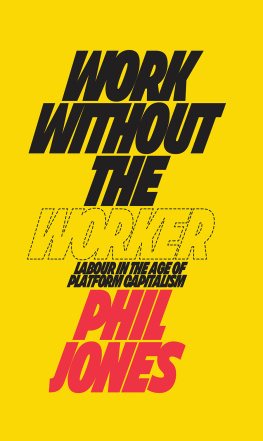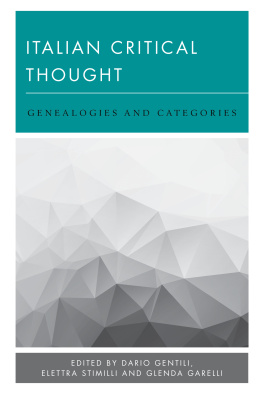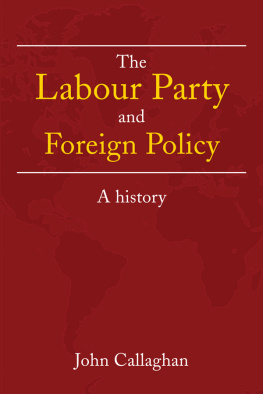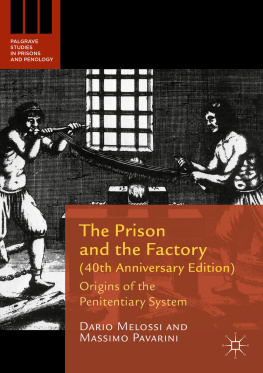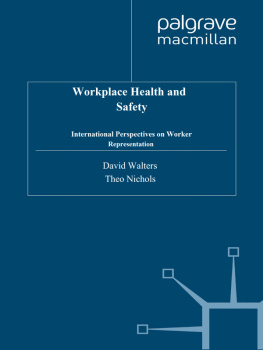Dario Azzellini - An Alternative Labour History: Worker Control and Workplace Democracy
Here you can read online Dario Azzellini - An Alternative Labour History: Worker Control and Workplace Democracy full text of the book (entire story) in english for free. Download pdf and epub, get meaning, cover and reviews about this ebook. year: 2015, publisher: Zed Books, genre: Politics. Description of the work, (preface) as well as reviews are available. Best literature library LitArk.com created for fans of good reading and offers a wide selection of genres:
Romance novel
Science fiction
Adventure
Detective
Science
History
Home and family
Prose
Art
Politics
Computer
Non-fiction
Religion
Business
Children
Humor
Choose a favorite category and find really read worthwhile books. Enjoy immersion in the world of imagination, feel the emotions of the characters or learn something new for yourself, make an fascinating discovery.

- Book:An Alternative Labour History: Worker Control and Workplace Democracy
- Author:
- Publisher:Zed Books
- Genre:
- Year:2015
- Rating:3 / 5
- Favourites:Add to favourites
- Your mark:
- 60
- 1
- 2
- 3
- 4
- 5
An Alternative Labour History: Worker Control and Workplace Democracy: summary, description and annotation
We offer to read an annotation, description, summary or preface (depends on what the author of the book "An Alternative Labour History: Worker Control and Workplace Democracy" wrote himself). If you haven't found the necessary information about the book — write in the comments, we will try to find it.
An Alternative Labour History: Worker Control and Workplace Democracy — read online for free the complete book (whole text) full work
Below is the text of the book, divided by pages. System saving the place of the last page read, allows you to conveniently read the book "An Alternative Labour History: Worker Control and Workplace Democracy" online for free, without having to search again every time where you left off. Put a bookmark, and you can go to the page where you finished reading at any time.
Font size:
Interval:
Bookmark:
About the editor
Dario Azzellini is assistant professor of sociology at the Johannes Kepler University. His research and writing focuses on social transformation, self-administration, workers control, democracy and social movements. Azzellini has published several books, including They Cant Represent Us (co-authored with Marina Sitrin, 2014), Ours to Master and to Own (co-edited with Immanuel Ness, 2011) and The Business of War (2002). He serves as associate editor for Cuadernos de Marte and is co-founder of workerscontrol.net . He served as associate editor for The International Encyclopedia of Revolution and Protest: 1500 to the Present (2009) and was primary editor for Latin America, the Spanish Caribbean and the new left in Italy. Azzellini is also a documentary filmmaker, co-directing, among other films, Comuna under Construction (2010) and 5 Factories Workers Control in Venezuela (2007).
www.azzellini.net
An Alternative Labour History
Worker Control and Workplace Democracy
Edited by
Dario Azzellini

Zed Books
LONDON
To my partner, comrade, friend and wife Marina Sitrin and to our wonderful son Camilo Turi Azzellini Sitrin.
An Alternative Labour History: Worker Control and Workplace Democracy was first published in 2015 by Zed Books Ltd, 7 Cynthia Street, London N1 9JF, UK
www.zedbooks.co.uk
Editorial copyright Dario Azzellini 2015
Copyright in this collection Zed Books 2015
The right of Dario Azzellini to be identified as the editor of this work has been asserted by him in accordance with the Copyright, Designs and Patents Act, 1988
Typeset in Bembo by Swales Willis
Index: Kerry Taylor
Cover designed by www.stevenmarsden.com
All rights reserved. No part of this publication may be reproduced, stored in a retrieval system or transmitted in any form or by any means, electronic, mechanical, photocopying or otherwise, without the prior permission of Zed Books Ltd.
A catalogue record for this book is available from the British Library
ISBN 978-1-78360-158-5
Contents
Dario Azzellini
Alex Demirovi
Dario Azzellini
Elise Danielle Thorburn
Peter Haumer
Franck Gaudichaud
Kimiyasu Irie
Henrique T. Novaes and Maurcio S. de Faria
Patrick Cuninghame
Anabel Rieiro
Alexandros Kioupkiolis and Theodoros Karyotis
Foreword
When workers organize themselves, occupy their workplace, and begin working under their own control, their action is often met with astonishment that such a thing could happen. People around the world were electrified, for example, when in 2001 Argentine workers took over two hundred factories, a hotel, and many other enterprises and began running them themselves. Yet such things have happened over and over again in different times and places. Now An Alternative Labour History: Worker Control and Workplace Democracy rescues this important aspect of worker history and action from the memory hole and makes available a wealth of historical understanding about it.
If the world of work under capitalism is largely a realm of unfreedom, workers taking over the companies that employ them and running them under self-management is emblematic of the emancipation of labor. Yet the relation between such workplace recuperation as it is now known and broader social change raises a host of issues. What, for example, is the relation between the control of a single workplace by its particular employees and control by society over the economy as a whole? How can a recuperated enterprise acquire the supplies it needs to produce and pay its workers without becoming captive to the dictates of lenders and the market? What are the similarities and differences between recuperated workplaces and more traditional worker cooperatives? Between recuperated workplaces and the worker councils and assemblies that have repeatedly sprung up in many countries in times of crisis? There is a long but little-known tradition of reflection on such questions, and this book recounts those reflections as well as the actions themselves.
Since the wave of recuperations in Argentina in 2001, such experiments have been going on around the world, and this book brings the story right down to the present with accounts of recuperated workplaces from Italy to Brazil to Chicago. Many of these have been closely connected to the wave of occupy, indignados, and anti-austerity movements that spread around the world in response to the global Great Recession. The book brings out some of the important new characteristics that are emerging in these new recuperations. For example, they often use the facilities they acquire to produce useful goods and services, but to produce different products and for different end-users in many cases for the local community or for the popular movement. They often modify products and production processes with an eye to ecological protection and the needs of the local economy. And they often use popular assemblies and network forms of organization in an effort to coordinate on a larger scale without establishing new markets or hierarchies.
These new approaches make clear that the possibilities opened by such worker takeovers, far from being just history, are a matter of living experiment and reflection. There is every reason to believe that workers will continue to turn to such things in the future as they have from time to time in the past. When they do, they will find in An Alternative Labour History: Worker Control and Workplace Democracy treasure trove that will be invaluable for making their action a truly effective contribution to the liberation of workers and society.
Jeremy Brecher
Acknowledgments
I want to thank first and foremost all workers who fight and take over workplaces as well as those who support them in different ways. I thank also a long list of researchers and organizations who have inspired radical thinking about workers struggles and social transformation, and who are supporting and conducting research on labor insurgency and workers self-organization. Special thanks go to all who have contributed to this work through writing, translating, editing and contributing important information. The list is not complete. If I have forgotten to thank anyone, I apologize. Many thanks to Carolina Cositore, Patrick Cuninghame, Milenko Sreckovic, Benot Borrits, Kika Sroka-Miller, Gigi Malabarba, workerscontrol.net , Alan Tuckman, Ralf Hoffrogge, Pina Toscano, Andrs Ruggeri, Laura Gottesdiener, Stiftung Menschenwrde und Arbeitswelt and the Rosa Luxemburg Foundation Berlin.
Introduction
Dario Azzellini
Over the past 135 years, in all kinds of historical situations and during various political and economic crises and in different political systems, workers have taken control of their workplaces. Yet this story of workers self-administered production is rarely told. Capitalists, bourgeois governments and administrators of systems based on the exploitation of workers usually have little interest in disseminating the history of self-organized workers; those who have successfully run factories without bosses. In the early 20th century workers tried to gain control over production in social and socialist revolutions, like those in Austria, Germany, Hungary, Italy, Russia and Spain, and under state socialism, as in Yugoslavia, Poland or Hungary; they did so as well in anti-colonial struggles and democratic revolutions in Argentina, Algeria, Indonesia and Portugal, to just name a few examples. Factory take-overs by workers and the perspective of workers control was also present in labor struggles against capitalist restructuring in the last third of the 20th century in France, the UK, Italy, Canada, Australia and elsewhere. Company occupations and workers self-administration have again manifested themselves strongly since the 1990s in Argentina and in many parts of South America, as well as in India and some European countries. Workers and communities have recuperated hundreds of factories and companies contending against the consequences of global capitalist crises ( is a common struggle of workers for the democratic control of production. They show how, even without knowledge of previous worker control initiatives or an explicit socialist consciousness, the collective administration of workplaces has frequently emerged as an inherent tendency among the rank and file. Workers councils and assemblies discuss, decide and work in a horizontal and directly democratic way. In the long run workers control has not been able to impose itself on a large scale. Media and expert discourses often suggest that the many problems worker-controlled companies faced internally were the reason for their failure. But despite all claims that workers control is not viable or the supposed loss of enthusiasm of workers and the adverse conditions of the capitalist context surrounding them, workers control almost always failed because of the threat or use of violent repression.
Next pageFont size:
Interval:
Bookmark:
Similar books «An Alternative Labour History: Worker Control and Workplace Democracy»
Look at similar books to An Alternative Labour History: Worker Control and Workplace Democracy. We have selected literature similar in name and meaning in the hope of providing readers with more options to find new, interesting, not yet read works.
Discussion, reviews of the book An Alternative Labour History: Worker Control and Workplace Democracy and just readers' own opinions. Leave your comments, write what you think about the work, its meaning or the main characters. Specify what exactly you liked and what you didn't like, and why you think so.

